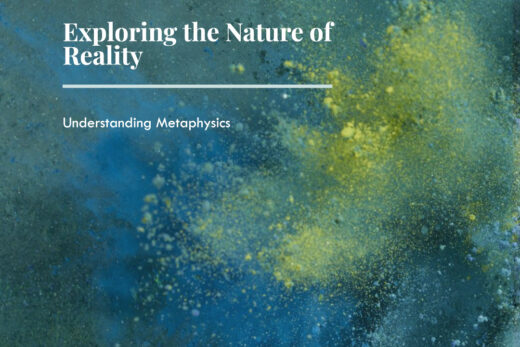Understanding existentialism can sometimes feel like finding your way through a labyrinth. However, with careful navigation, we can make sense of the various nuances and ideologies that form the heart of this philosophy. In this article, we will delve into the core concepts of existentialism, its evolution, and its significance in shaping human perspectives on life and existence.
Existentialism at a Glance
Existentialism is an intriguing school of thought that revolves around human existence. It encourages the exploration of life’s meaning not from an objective standpoint, but from a subjective one—through the individual’s personal experiences and interpretations. At its core, existentialism postulates that existence precedes essence, implying that we, as humans, exist first and then seek out our own unique purpose in life.
Influential Thinkers and the Dawn of Existentialism
Existentialism was not the brainchild of a single philosopher. It’s the result of the reflections of a number of influential thinkers, who emerged at different times and places, challenging established philosophical norms. Notable among them are Søren Kierkegaard, Friedrich Nietzsche, Fyodor Dostoevsky, and Jean-Paul Sartre.
These existentialist philosophers questioned the widely accepted theory of essentialism—a belief endorsed by Aristotle—that our essence or purpose is predetermined before we exist. This thought challenged the mainstream religious beliefs of the time, triggering an intellectual revolution in human understanding.
Existence Precedes Essence: A Paradigm Shift
The existentialists introduced a novel concept—existence precedes essence. This means that we come into the world as a ‘blank slate’ or ‘tabula rasa’, with no predefined purpose or destiny. Instead, we create our own purpose and meaning through our actions, decisions, and experiences. This was indeed a transformative idea that enabled a shift from a deterministic worldview to one endorsing personal freedom.
Freedom, Choice, and the Burden They Bring
With freedom comes responsibility. Existentialism posits that we are free to make our own choices, and these choices carve out the trajectory of our lives. But this absolute freedom can be overwhelming and lead to existential dread—an intense feeling of apprehension about life’s inherent meaninglessness. This is the burden of our freedom, and it’s not uncommon for us to experience an existential crisis under its weight.
Absurdity and Authenticity in Life
Existentialists also introduced the concept of ‘the absurd’. This is the notion that life, by default, lacks meaning, and our quest to find answers often seems absurd in an inherently meaningless world. Yet, existentialists argue, we must create our own moral code and pursue an authentic life—a life lived in accordance with our individual values and beliefs.
However, living authentically is easier said than done. We often find ourselves living in ‘bad faith’—a state where we ignore our freedom and let societal expectations or norms dictate our actions. Recognizing this dichotomy between authentic living and bad faith is a crucial step toward a better understanding of existentialism.
Conclusion: The Significance of Existentialism
In essence, existentialism prompts us to question our existence and encourages us to lead lives defined by our personal choices. The importance of existentialism lies in its emphasis on individual freedom and responsibility. It beckons us to confront the realities of our existence, make sense of our freedom, and ultimately, to create our own purpose in life. In doing so, it provides us a profound understanding of what it truly means to be human.
Frequently Asked Questions (FAQ)
What is the key concept of existentialism?
The key concept of existentialism is that “existence precedes essence.” This means that individuals exist first, and then each person creates their own unique purpose or essence in life.
What are the key concepts of existentialism philosophy?
The key concepts of existentialist philosophy include the idea that individuals are free and responsible for their own choices, that life can be inherently meaningless (the concept of ‘the absurd’), and the emphasis on subjective experience.
What does the theory of existentialism mean?
The theory of existentialism refers to the philosophical view that emphasizes individual existence, freedom, and choice. It asserts that people are free to decide who they are and what their meaning in life will be through their own actions and experiences.
What are the two basic concepts of existentialism?
The two basic concepts of existentialism are “existence precedes essence” and absolute individual freedom. These concepts suggest that individuals exist first without any predetermined purpose, and they are free to carve out their own path in life.
What is the goal of existentialism?
The goal of existentialism is not to provide an objective ‘truth’ about life, but to encourage individuals to create their own purpose or meaning, live authentically, and take full responsibility for their actions.
What is existentialism and its importance?
Existentialism is a philosophical approach that emphasizes individual existence, freedom, and choice. Its importance lies in its focus on personal responsibility and the idea that individuals can give meaning to their own lives. It is a call to live authentically and to create our own path in an inherently meaningless world.




